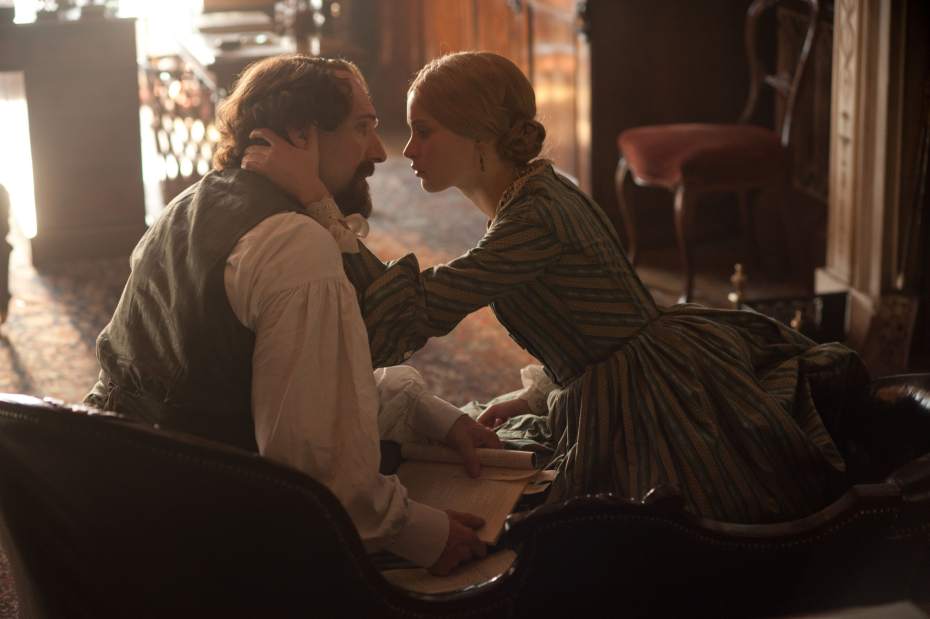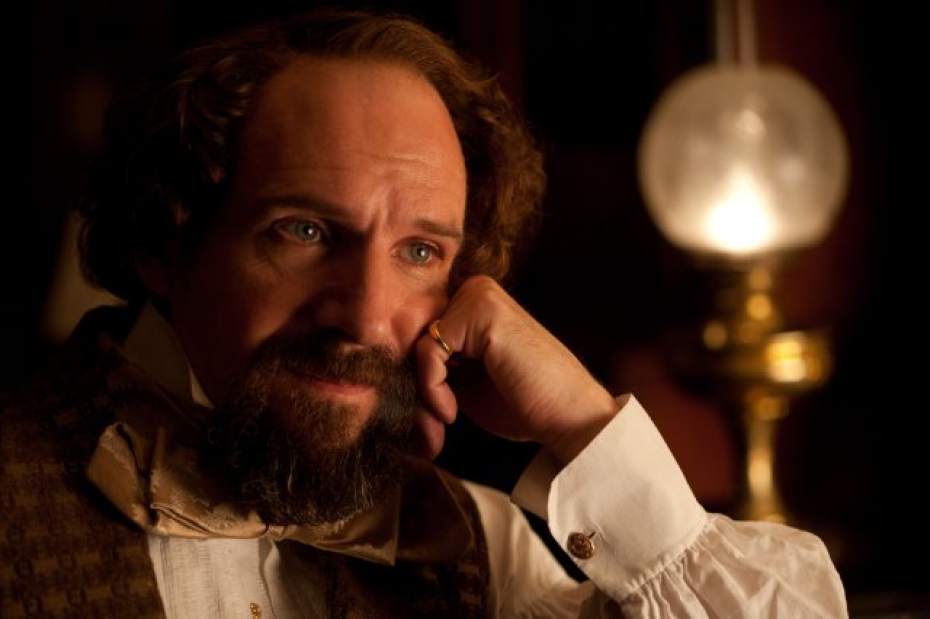Fiennes a force in 'Invisible Woman'
Ralph Fiennes brings the many colors and contradictions of the writer Charles Dickens to glorious life in “The Invisible Woman,” a melancholy biography about Dickens' affair with a much-younger woman while at the height of his fame.
Period-perfect, but with tragic overtones which rob it of romance and warmth, it is one of the most sedate and chaste melodramas ever to earn an R-rating. And built as it is upon a sterile performance by Felicity Jones (“Hysteria,” “Brideshead Revisited”), we are left wondering just what it was that the older man saw in her, save for youth and beauty. Especially, since the reason he gives for their affair is that his dull, matronly wife (Joanna Scanlan) bores him.
In 1883, Nelly (Jones) teaches at a boys school in Marsgate. She's married, apparently well-thought-of, is directing a play co-written by Dickens, and seems uncommonly familiar with the author's intentions. Of course, her husband (Tom Burke) gushes. She knew the great writer “when she was a child.”
But during flashbacks, Nelly remembers she was no child at all. She was an 18-year-old actress, least-talented among a family headed by her widowed mother (Kristin Scott Thomas); and working with Dickens, who was the most-celebrated writer of his day.
Fiennes captures Dickens' charisma and his eager-to-please workaholism. The poverty he knew is just beneath the surface of this frantic, disciplined writer. The need to keep his dour wife, his large brood of children, his cast of actors, his friends and his collaborator (Tom Hollander) happy is in his manic manner. He makes eyes at young Nelly, but only in the most cautious, courteous ways.
Nelly's mother (Thomas) has the hollow-eyed look of an impoverished Dickens heroine, a woman who can do the hard math of her daughter's acting future and the one being the mistress of a famous man promises.
Nelly must reconcile herself to something she finds abhorrent, and Dickens must cope with the risk of great scandal that comes when you are the most famous man in Britain and you're seeing a woman who isn't your wife.
The story stumbles back and forth between the 1883 present, when a disturbed Nelly fights off the memories of her past, and that 1865 past.
There simply is no heat in the relationship. The survival strategy of being “kept” explains that. He was 53 to her 18. Even then, that was a huge gap. But Fiennes holds it all together by force of what he does show us about the man, his kindness tempered with cruelty, the charity he practiced and preached, the morality he could never live up to. It's the visible great man who makes “The Invisible Woman” worth watching.
Roger Moore is a staff writer for McClatchy-Tribune News Service.


